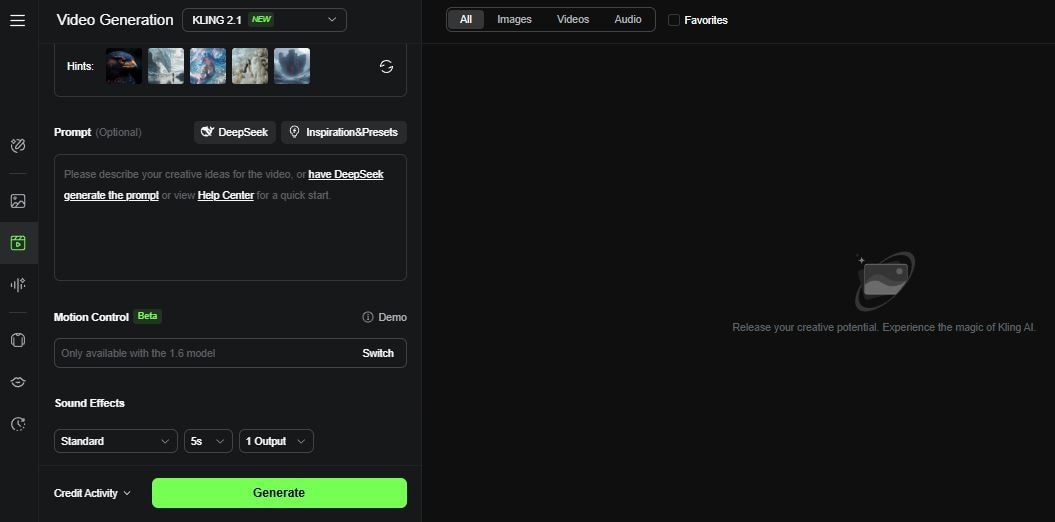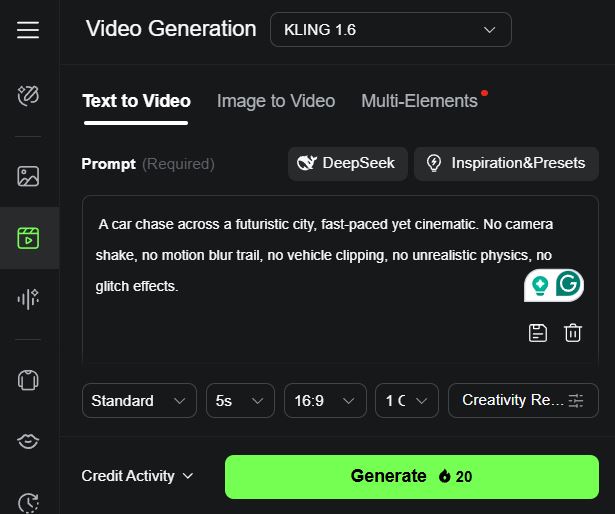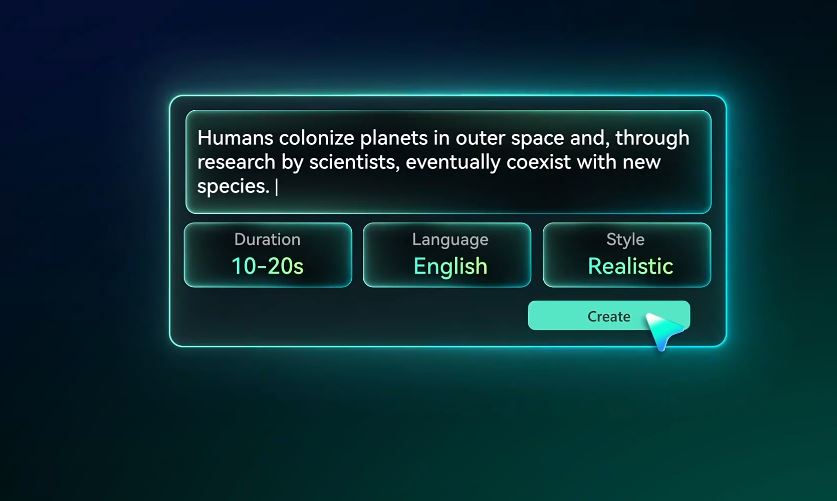Let's say you have been using Kling AI for quite some time now. That's great. Now, you want to take your routine to another level. Well, the best thing you can do is to incorporate some Kling AI negative prompts. Doing so will help you refine the quality of your outputs and reduce generation errors. Fret not. The creation process remains the same. You just basically have to include these clever inputs in your existing prompts. No complex procedures to be taken.
In this article, we will discuss the highlights of using a Kling AI negative prompt. We will also go through some examples by use cases and provide helpful tips. Continue reading below to learn more.
In this article
Getting to Know the Power of Kling AI Negative Prompts
In simple terms, Kling AI is a potent video generation tool being used widely across the globe, which has recently issued Kling 2.5 Turbo. It basically transforms different text prompts into actual video content. Yes. No need to do the manual editing procedures. Simply write a text prompt that describes the video you want to create. Specify the style, motion, subject, mood, and other important essential elements. You can take it up a notch by adding some Kling AI negative prompts.

It's not that hard to understand how to use the Kling AI negative prompts. Generally, you just have to specify the elements you want to disregard when generating videos. That's the main purpose of these clever inputs. You use them to set limitations and keep the outputs within the bounds of your preferences. Among the generation issues it quickly fixes are flickering frames, limb deformation, and the like.
Should you use the Kling AI negative prompt when generating outputs? The short answer is absolutely yes. You should combine it with your main prompt to prevent unwanted production flaws and generic results. The Kling AI negative prompt is the ultimate key to high-quality video generation.
Best Kling AI Negative Prompts By Use Cases
Undoubtedly, the Kling AI negative prompt is a very powerful generation tool, especially when used with intention. That's why you should use only the specific Kling AI negative prompt that matches the output you want to generate. Don't worry. It's not that hard to navigate. To help you get started, check out the examples of some Kling AI negative prompts according to use cases.
Cinematic Films
If you want to produce a movie-like scene, here's the best combination you can take into consideration.
- Main Kling AI Prompt: A romantic sunset over a beautiful mountain. Add cinematic lighting.
- Kling AI Negative Prompt: No grain, no lens distortion, no flicker, no low resolution.
Character Animation
You can create life-like animated characters with the help of some Kling AI negative prompts. Check them out below.
- Main Kling AI Prompt: Animated-style, a man strolling around a neon-lit street.
- Kling AI Negative Prompt: No extra fingers, no deformed limbs, no face blur, no glitching.

Product Marketing
It can help you present your products and promote them effectively. Here's one of the combinations you can try.
- Main Kling AI Prompt: 360-degree view of a luxury bag on a bright yellow background.
- Kling AI Negative Prompt: No shadows, no reflections, no motion blur, no unnecessary objects.
Fashion Runway
A Kling AI negative prompt can take your modelling scene to another level. Try to follow the combination written below.
- Main Kling AI Prompt: A female model walking confidently down the runway in slow motion, editorial style.
- Kling AI Negative Prompt: No awkward arm movement, no double limbs, no stutter, no poor lighting.
Fantasy-Themed Settings
You can create your own world using a good set of Kling AI negative prompts. Here's the combination you can try.
- Main Kling AI Prompt: A floating castle in the sky, shining brightly at night, magical ambience.
- Kling AI Negative Prompt: No clutter, no pixelation, no overlapping structures, no unnatural lighting leaks.

Nature-Related Content
You can generate realistic natural scenes using Kling AI negative prompts. Here's a great example you can try.
- Main Kling AI Prompt: A tiger roaming around the forest, documentary style.
- Kling AI Negative Prompt: No blurry motion, no incorrect animal anatomy, no unnatural colors, no environmental glitches.
Action-Filled Sequences
You can produce active sequences that demonstrate a lot of complex movements. Check out this example.
- Main Kling AI Prompt: A car chase across a futuristic city, fast-paced yet cinematic.
- Kling AI Negative Prompt: No camera shake, no motion blur trail, no vehicle clipping, no unrealistic physics, no glitch effects.
How to Create Negative Prompts for Kling AI?
It's easy to create negative prompts for Kling AI if you already know what you don't want in the video. From there, you just have to specify these elements and add them to your existing prompt. No big deal, right? However, there are some techniques you should incorporate if you want to enhance the quality of your outputs. Do you want to know what those are? Check out the list below and keep it in mind as you go through the generation process.
- Always use simple and straightforward phrasing. No vague or complex wordings, as much as possible.
- Prioritize the visual issues that often influence the realism, smoothness, and style of the output.
- Make sure that your Kling AI negative prompts match the type of scene you want to generate. Don't confuse the AI by adding unrelated information to the prompt.
- When writing Kling AI negative prompts, always consider function and aesthetics. Ensure that both of them go well together.
- Don't overload your description with Kling AI negative prompts. Three to seven items are already enough.

In case of revision, you can refine your Kling AI negative prompt and regenerate one. Here are some techniques that can truly help you in this regard.
- Try to be more specific or rephrase some existing items in your prompt.
- If you have previous combinations that worked well, insert a bit of them into your prompt.
- Test different variations of Kling AI negative prompts before settling on one.
- Compare the results generated by different Kling AI negative prompts you run.
- Always strike a clear balance between positive and negative prompts.
Bonus Tip: Wondershare Filmora Also Runs Negative AI Prompts
There is no doubt that the negative prompts for Kling AI are very helpful. You can use it to create video content that is relevant and detail-specific. Good thing that the use of negative prompts can also be incorporated when using other tools. Wondershare Filmora, for instance, has an AI Idea/Text To Video feature. It's a special tool that produces a stunning video script and designs a captivating storyline from text. While writing a description, you can include some negative prompts to make your script more airtight. Yes. That can truly help, especially if the components you wish to exclude are specified in the prompt. Therefore, consider adding negative prompts when you use the AI Idea/Text to Video feature of Wondershare Filmora.

Aside from a solid video script, here are the other benefits you can get from doing so:
- Create cinematic storyboards automatically.
- Context-focused characters.
- Script-to-video generation.
- Edit the video further within the Wondershare Filmora platform.
Conclusion
The Kling AI negative prompts are not just text fillers that take up space and fill the gap. These items enhance your creative control over the video generation project. As indicated earlier, these prompts can help you remove distractions and improve video quality. That's why you should explore the idea of integrating the Kling AI negative prompt into your next project. Likewise, you may also give it a try if you're editing videos using Wondershare Filmora. Its AI Idea/Text-To-Video and other similar features are capable of running such inputs from users. Make the most of the negative prompts and create high-quality video content using this tool. Believe it or not, they can truly be of great help to you.



 100% Security Verified | No Subscription Required | No Malware
100% Security Verified | No Subscription Required | No Malware


